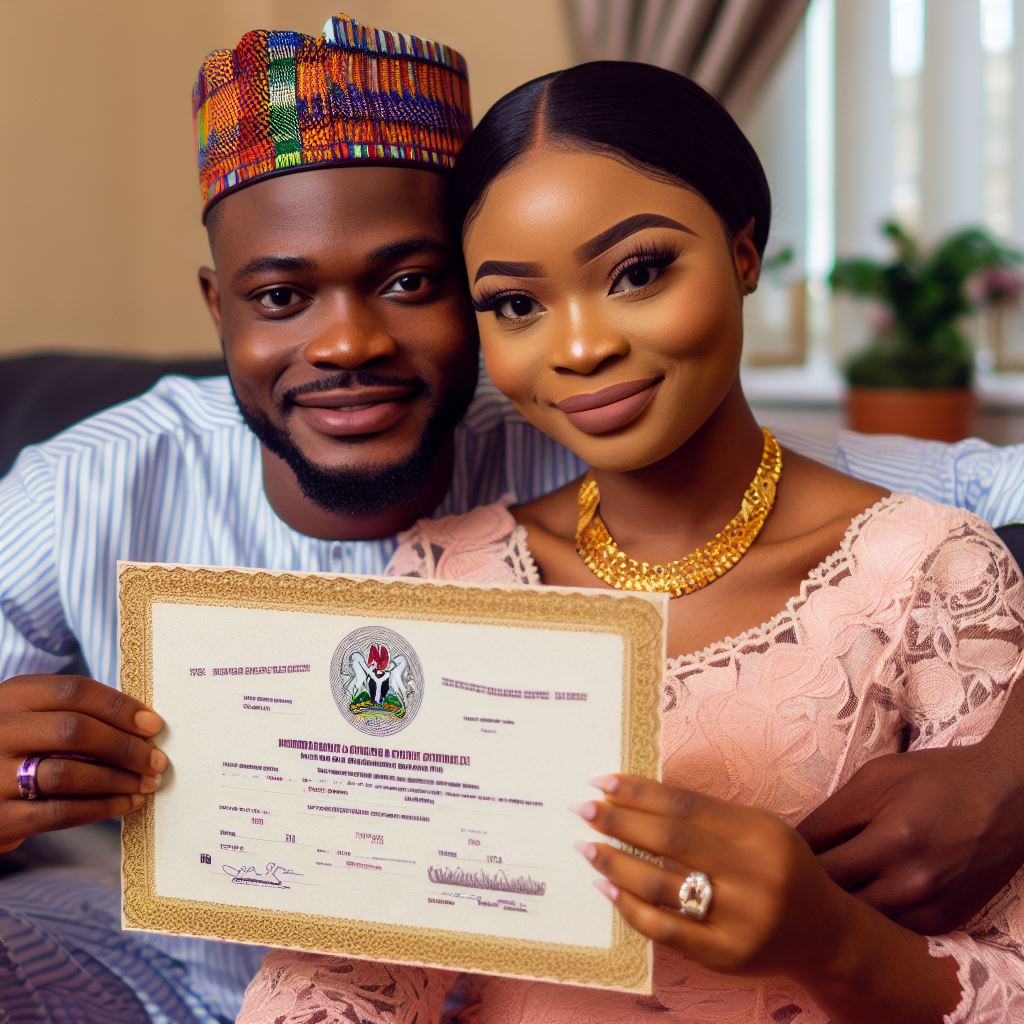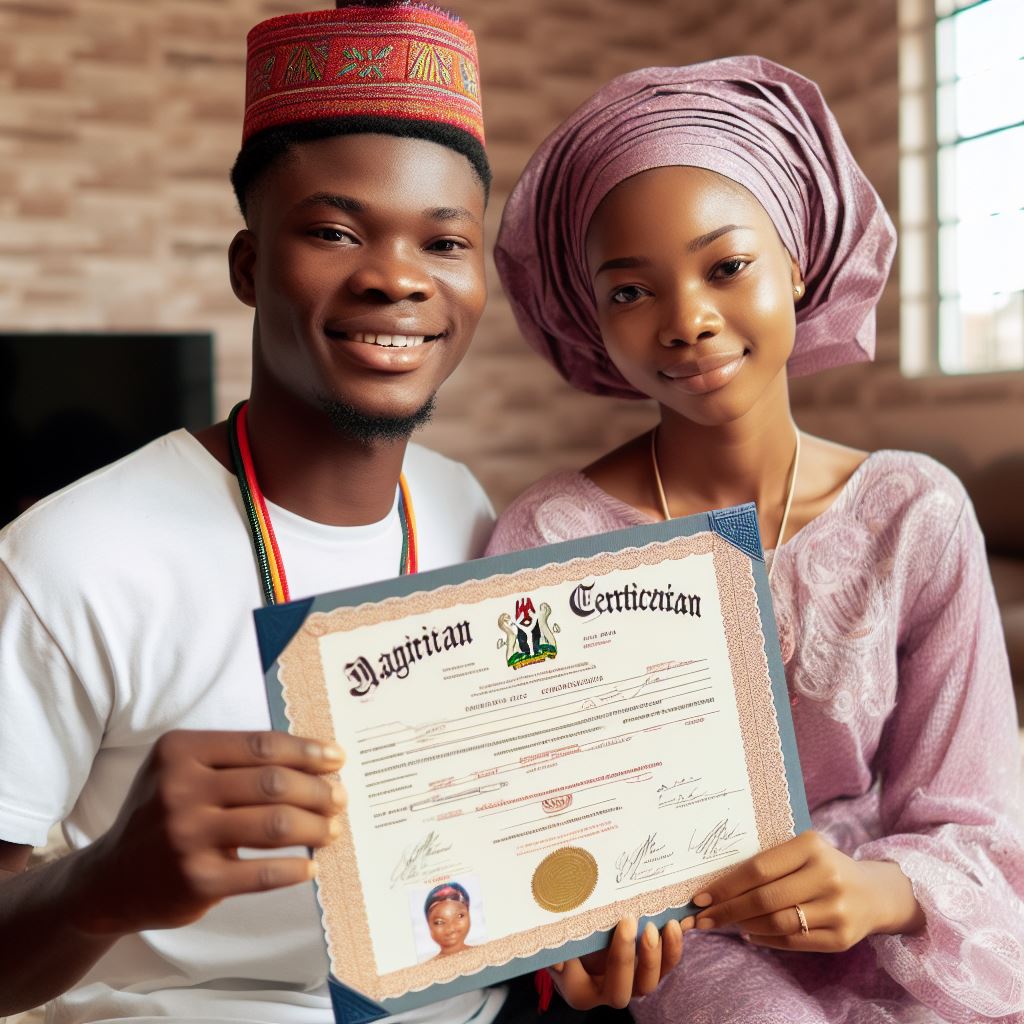Introduction
Marriage in Nigeria is a significant aspect of the culture and society, with various types of marriages recognized.
It is crucial to choose the right type of marriage for legal and societal reasons.
A Brief overview of marriage in Nigeria
Marriages in Nigeria are classified as either customary or statutory, each having its own legal framework and requirements.
Customary marriages are rooted in tradition and are recognized by certain ethnic groups, while statutory marriages follow the legal provisions outlined in the Marriage Act.
Importance of choosing the right type of marriage
Choosing the right type of marriage is essential for legal protection and societal acceptance.
Statutory marriages provide legal recognition and safeguards, ensuring inheritance rights and access to benefits.
Customary marriages, although recognized by communities, may lack legal protection, making it vital to understand the implications in terms of property rights and obligations.
Moreover, the choice of marriage type can impact issues such as divorce proceedings, child custody, and custody of assets.
Knowing the differences and consequences of each type allows couples to make informed decisions about their union and protect their rights and interests.
It is crucial to also consider personal and cultural preferences when deciding between customary and statutory marriages.
While statutory marriages may offer more legal rights, customary marriages often hold deep cultural significance and provide a sense of belonging to one’s community.
In a nutshell, understanding the differences between customary and statutory marriages is vital for Nigerians looking to tie the knot.
Consideration should be given to legal protection, cultural significance, and personal preferences to ensure a successful and fulfilling marriage.
Read: Cultural Dynamics and Its Effect on Marriages in Nigeria
Customary Marriages
Definition and characteristics of customary marriages
Customary marriages in Nigeria are marriages that are conducted and recognized by traditional customs and practices.
Traditional practices and requirements
- Introduction to dowry payment: In customary marriages, the groom is required to pay a dowry or bride price to the bride’s family as a sign of respect and commitment.
- Role of families and elders: Customary marriages involve the active participation of the families and elders in the decision-making process and ceremony.
Advantages and disadvantages
- Cultural preservation: Customary marriages help preserve and maintain Nigeria’s diverse cultural heritage.
- Lack of legal protection: Unlike statutory marriages, customary marriages do not offer legal protection to couples in case of divorce or property disputes.
- Limited recognition outside Nigeria: Customary marriages may not be recognized or accepted in other countries, which can create difficulties when traveling or residing abroad.
Read: Celebrating Anniversaries: Keeping Love Alive in Nigeria
Statutory Marriages
- Statutory Marriage Regulations: Governed by the Marriage Act, providing formal structure for legal recognition.
- Requirements and Compliance: Couples must meet age, consent, and capacity stipulations for validity.
- Registration Process: Involves giving notice of intent at the local registry office.
- Marriage Certificate: Issued upon completion, serving as legal proof of the union.
Advantages of Statutory Marriage
- Legal Protection: Grants rights like inheritance and healthcare access.
- Decision-making: Enables spouses to make decisions for each other.
Disadvantages and Challenges
- Cultural Conflicts: Some customs may clash with statutory requirements.
- Potential Opposition: Families or communities might oppose due to traditional practices.
- Financial and Time Implications: Fees involved, and waiting period during registration process.
Understanding these aspects helps couples make informed decisions, whether opting for statutory or customary marriage.
Read: Marriage Therapy & Counselling Options in Nigeria

Factors to Consider when Choosing
Personal preferences and beliefs
- Reflect on your personal values and beliefs to determine which type of marriage aligns with them.
- Consider factors like cultural and religious practices that may influence your choice.
- Assess whether you prefer a more traditional or modern approach to marriage.
Acceptance and recognition within the community
- Evaluate the level of acceptance and recognition you desire within your community.
- Traditional communities may prioritize customary marriages, while others may acknowledge statutory marriages more.
- Consider the social implications and support systems associated with each type of marriage.
Legal rights and protections
- Research the legal rights and protections offered by both customary and statutory marriages.
- Statutory marriages often provide more legal safeguards, such as inheritance rights and divorce proceedings.
- Consider the implications on property ownership, child custody, and spousal support between the two types of marriages.
Accessibility and cost
- Examine the accessibility and requirements for obtaining each type of marriage.
- Customary marriages may be more accessible and less bureaucratic, requiring fewer formalities.
- Evaluate the financial implications, including registration fees and potential additional costs, such as prenuptial agreements.
Considering these factors from your personal perspective will help you make an informed decision regarding your marriage type.
It is essential to remember that the choice between customary and statutory marriages is subjective and dependent on individual circumstances.
Take your time to evaluate what matters most to you and your partner, and seek legal advice if necessary for a smooth transition into marriage.
Read: Communication: The Pillar of Nigerian Marriage Success
Conclusion
Recap of the key points
The choice between customary and statutory marriages in Nigeria has several important considerations.
Customary marriages are recognized by traditional customs and provide certain inherent benefits, such as cultural significance and acceptance within the community.
However, they lack legal protection and rights afforded by statutory marriages.
Statutory marriages, on the other hand, are recognized by law and provide legal rights and protections for both spouses.
These include property rights, inheritance rights, and entitlement to spousal support.
Additionally, statutory marriages require compliance with legal requirements and registration procedures.
It is crucial for individuals to understand the pros and cons of both options and seek legal advice before making a decision.
Engaging legal professionals familiar with Nigerian marriage laws can provide valuable guidance in navigating the complexities of marriage options.
They can ensure that individuals make informed choices that align with their personal goals and safeguard their rights.
Encouragement to seek legal advice
If you are considering marriage in Nigeria, it is highly recommended to consult with a legal professional specializing in family law.
They can provide personalized advice based on your unique circumstances and help you understand the legal implications of each marriage option.
Seeking legal advice can help you make informed decisions and protect your rights and interests.
Reminder of the importance of making an informed decision
Choosing between customary and statutory marriages is a significant decision that will impact your life and future.
It is crucial to be well-informed about the legal consequences and rights associated with each type of marriage.
By gaining knowledge and seeking legal advice, you can ensure that you make the best choice that aligns with your values, goals, and aspirations.




